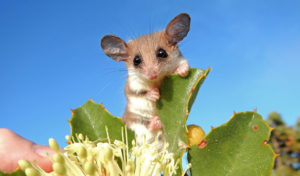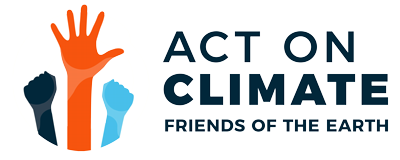
Climate Experience:
Citizen has reported a massive decline in pygmy possums in the area.
Explanation:
- Mountain pygmy possum populations have declined by up to 87% since1996.[1]
- The mammal faces threats on a number of fronts including reduced snow cover, early snow melt, a decline in their food source (the bogong moth) and an increase in bushfires.[2]
- Possums need sufficient snow cover to protect themselves through the winter, snow depths have been declining since the 1950s,[3]as has the spatial extent of snow cover.[4]
- Early snow melt means that pygmy possums come out from hibernation before their food source, the bogong moth, has migrated to the area, leading to starvation.[5] Moreover in recent years the bogong moth population has also rapidly declined due to its own battles with climate change.[6]
- Bushfires impact the possum for the obvious reason of immediate death. The 2000-19 period has seen 67% more total fire bans across Victoria compared to the preceding two decades.[7] The number of dangerous bushfire days is increasing, along with the intensity of fires.[8]
Ramifications:
- Australia is the second worst country in the world when it comes to biodiversity loss.[9]
- Victoria has the highest number of threatened species of all states/territories in Australia.[10]
What can be done?
- Email your local MP and tell them that action on climate is important to you and explain the impacts being felt in your area. One email might not feel like much but most politicians consider it to be representative of 100 citizens.
- Help support the Act on Climate collective by donating; we are leading the charge for climate action. Your donation helps in advancing policies that prevent climate change from getting worse, we aim to empower communities and build a strong pro-climate-action constituency that governments can’t ignore, and as an added bonus it’s tax-deductable.
- Get involved with Act on Climate. We meet every Monday at 6pm (upstairs at 312 Smith St, Collingwood) and welcome all newcomers to join in the fight for climate justice. If you are unable to attend, follow us on Facebook, Twitter and Instagram to keep up with the latest campaign.
* We aim to keep our material as accurate and as relevant as possible. Working with climate science, a field that is being constantly updated, keeps us on our toes. Information on this site was gathered on June 1 2019; if you notice information that needs updating please let us know. For the full reference list please see the following.
___________________________
[1]Land Department of Environment, Water and Planning, “National Recovery Plan for the Mountain Pygmy-Possum Burramys Parvus,” (Canberra: Commonwealth Government of Australia, 2016).11.
[3]Janice Bathols & Kevin Hennessy Jonas Bhend, “Climate Change Impact on Snow in Victoria,” (Aspendale: CSIRO, 2012).1.
[4]CSIRO, “State of the Climate.”9.
[5]Linda Broome et al., “A Brief Review of the Life History of, and Threats to, Burramys Parvus with a Prehistory-Based Proposal for Ensuring That It Has a Future,” Wildlife and Climate Change: Towards Robust Conservation Strategies for Australian Fauna’.(Eds D Lunney, P Hutchings) pp (2012).117.
[6]Graham Readfearn, “Decline in bogong moth numbers leaves mountain pygmy possums starving,” The Guardian, published February 25, 2019, https://www.theguardian.com/environment/2019/feb/25/decline-in-bogong-moth-numbers-leaves-pygmy-mountain-possums-starving
[7]“History of TFBs,” CFA, accessed April 29, 2019, https://www.cfa.vic.gov.au/warnings-restrictions/history-of-tfbs
[8]CSIRO, “State of the Climate.”5.
[9]Nick Kilvert, “Australia among seven nations responsible for more than 50 per cent of global biodiversity loss,” ABC News, access April 29, 2019, https://www.abc.net.au/news/science/2017-10-26/australia-biodiversity-loss-conservation/8987696
[10]Victoria, “Interim Victorian State of the Environment Report 2018.”, 21.
